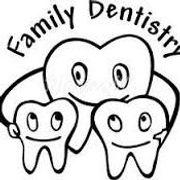
Gum disease, also known as periodontitis, causes inflammation to the tissue and affects 64.7 million Americans. When left untreated, this condition can lead to chewing problems, jawbone deterioration, and even tooth loss. Fortunately, learning more about this condition may help you avoid long-term damage, and here are some frequently asked questions about this oral health disease.
What You Should Know About Gum Disease
What are the symptoms?
Gum disease can go undetected for a long time because there aren’t many visible signs in the early stages. However, if you notice that your gums are redder or more swollen than usual or bleed when you brush your teeth, it’s a cause for concern. Persistent bad breath, receding gums, and sensitive teeth are other signs of disease.
What causes gum disease?
Gum disease begins when plaque accumulates underneath your gum line. If the plaque isn’t removed through brushing and flossing, it turns into tartar, which increases the risk of bacterial infection. When the gums become infected, you can experience issues like pain and tooth loss. Certain factors can increase plaque formation, including smoking, poor oral hygiene habits, and hormonal changes.
What treatments are available?
 Multiple treatments are available for periodontal disease, and the type your family dentist suggests will depend on the stage. If your condition is in the early stages, it’s possible to treat it with scaling and root planing. This procedure involves removing plaque and tartar from beneath the gum line and then smoothing over the root service. If you have advanced periodontal disease, a surgical procedure, like pocket reduction surgery, may be necessary. This reduces the depth of your gums, allowing less room for plaque growth and better access for dental procedures.
Multiple treatments are available for periodontal disease, and the type your family dentist suggests will depend on the stage. If your condition is in the early stages, it’s possible to treat it with scaling and root planing. This procedure involves removing plaque and tartar from beneath the gum line and then smoothing over the root service. If you have advanced periodontal disease, a surgical procedure, like pocket reduction surgery, may be necessary. This reduces the depth of your gums, allowing less room for plaque growth and better access for dental procedures.
How do you prevent gum disease?
Removing plaque through daily brushing and flossing is one of the most effective ways to protect against periodontal disease. It’s also vital to eat antioxidant-rich foods, like leafy green vegetables and citrus fruits, to help your body fight off infections. If you smoke, make an effort to quit, as tobacco can make you more susceptible to gum infections.
If you’re exhibiting signs of gum disease, turn to the professionals at Bethel Family Dentistry. The family-oriented dental office treats patients of all ages and uses state-of-the-art techniques and technology for all their procedures. From routine cleanings to periodontal disease treatments and root canal therapy, they offer a broad range of services and always go the extra mile for their patients. For more information about their services, call (513)-734-2029.
About the Business
Have a question? Ask the experts!
Send your question

